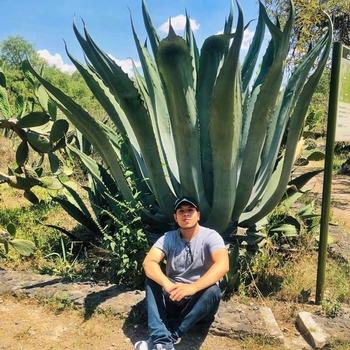Jesús Eduardo Villota Mera

International Research Training Group 'Temporalities of Future'
PhD Candidate
Project: "Gypsy patriarchy and Pentecostal socialization in the temporary-identity construction of Roma in Mexico"
Education
| Since 05/2023 | PhD Candidate, International Research Training Group ‘Temporalities of Future’ |
| Since 08/2021 | Doctoral student in Political and Social Sciences (Universidad Nacional Autónoma de México UNAM) |
| 11/2016-11/2018 | Master in Social Sciences with a mention in Gender and Development (FLACSO, Ecuador) |
| 05/2015-06/2015 | Diploma in Political training with a gender perspective (CIESJU – Universidad de Nariño – Colombia) |
| 08/2010 – 12/2015 | Bachelor in Sociology (Universidad de Nariño – Colombia) |
Work Experience
| Since 05/2023 | Researcher, International Research Training Group ‘Temporalities of Future’ |
| 04/2021 – 05/2021 | Course teacher: Gender-Based Violence: concepts, modalities and forms of prevention (Instituto de Estudios Latinoamericanos INESLA – Bolivia) |
| 05/2020-12/2020 | Documenter (Comisión para el Esclarecimiento de la Verdad, la Convivencia y la No repetición - Colombia) |
| 09/2019-12/2019 | Professor in Sociology (Universidad de Nariño, Tumaco campus – Colombia) |
| 06/2015 – 05/2016 | Coordinator of Support for the Rrom People (Asociación Nariñense para el Desarrollo y el Fortalecimiento Territorial – Colombia) |
| 08/2014-12/2014 | Professional practitioner associated with ethnic affairs (Government of Nariño-Colombia) |
| 06/2012 -08/2012 | Research monitor at the proyect Socio-labor conditions of general practitioners in the municipality of Pasto in 2012 (Sociology Program, University of Nariño - Colombia) |
Project: "Gypsy patriarchy and Pentecostal socialization in the temporary-identity construction of Roma in Mexico"
The objective of the research is to analyze the relationship between the epistemic and temporal structure of Roma patriarchy and Pentecostal socialization in the temporal-identity construction of Roma women and men in Mexico. This research, which is linked to studies of religion and gender, seeks to account for how the Roma identity is compromised by the encounter of two differential understandings of time, the first one coming from its historical-cultural conventions (which are typified under the category of "gypsy patriarchy") and the second comes from the evangelical religion of a Pentecostal nature. In its methodological part, the research contemplates the use of a qualitative methodology, an ethnographic method and the techniques of participant observation and interviews.
The “high sense of autonomy; his heightened feeling of freedom; his nomadic character; their concept of time, which is an eternal present" (Gómez Baos 2010, 19) characterized among the Roma, is going to be faced with another conception of time of a socio-religious order and of global scope that is that of Pentecostalism (mainstreamed by Judeo-Christian intelligibility-temporality framework). Faced with this encounter, it is possible to ask how these different conceptions of time interact or collide? And what are its implications for the identity of this ethnically defined population present in Mexican territory?
The encounter between these temporalities, far from being an episodic issue, develops as a transversal phenomenon that reaches Roma identities, whose encounter can promote the restructuring of aspects related to temporalities (chronological/symbolic) inscribed in aspects such as the delimitation of gender-religious expectations (what will be expected of a Romani-Pentecostal woman or man), the construction of schedules and lifestyles based on the emerging Pentecostal religious dynamics, the interruption and possible future abandonment of knowledge and ancestral practices that are now being interpreted as "sins" or the socialization of temporary conceptions of the "beyond" (apparently indistinct in terms of gender) such as paradise, hell, salvation or damnation that before the arrival of Pentecostalism did not possess the force that they currently have.
In this way, the encounter between the temporary cultural keys of the collective and those of Pentecostalism would open up great opportunities for the transformation of the Roma temporary-identity construction in Mexico. The study of this relationship of epistemes and temporalities occupies this research.
Articles (selection)
Villota, J. (2019). Efectos de las interacciones interétnicas en las relaciones de género de la kumpania de gitanos en Quito. Revista Interdisciplinaria de Estudios de Género de El Colegio de México, 5, 8 de abril de 2019, e358, http://dx.doi.org/10.24201/eg.v5i0.358


